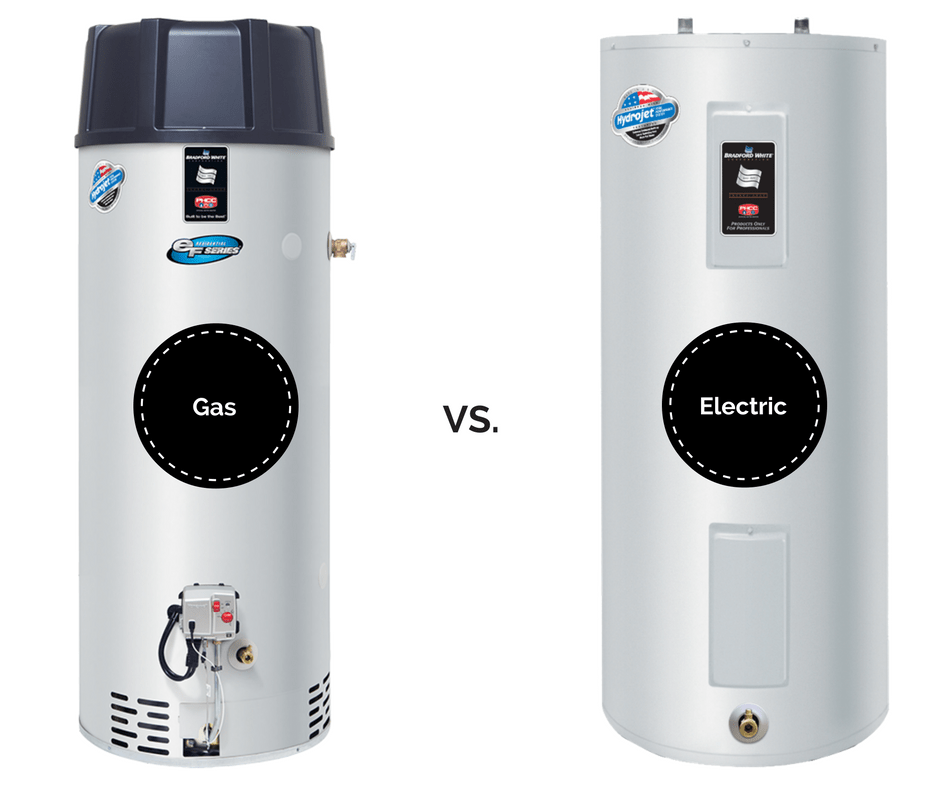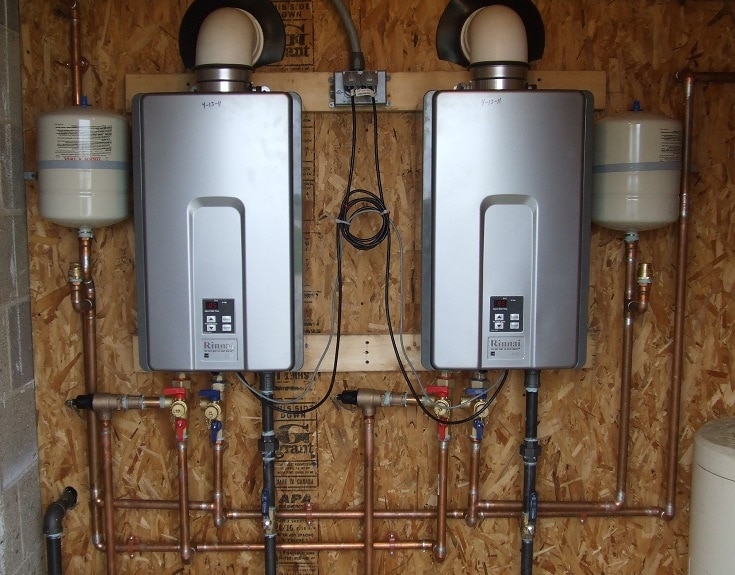Are you planning to build a shop, home, or any other structure in California? Well, if you’re, you should know

A electric water heater is an important system in every home. Unfortunately, water heaters usually last for about 8 - 15 years, so you’ll have to replace them over time. Otherwise, you’ll have to go without hot water in your home.
When that time comes, there are 2 basic types of water heaters you can install in your home; gas & electric water heaters. According to research, about 60% of homes in the United States use gas water heaters, while 40% use electric. But, which is the best option for your home; gas or electric water heater?
Well, that’s what we’ll be looking at in this post as we conduct a detailed comparison between gas and electric water heaters!
Differences between Gas and Electric Water Heater
Electric water heaters are generally more energy efficient compared to gas units because of how they operate. More importantly, an electric heater uses almost all the energy it receives and converts it into hot water. However, despite being more energy efficient, electric heaters are more costly to run due to the high electricity costs.
In contrast, a conventional gas water heater is relatively inefficient due to the heat loss from the storage tank walls and exhaust gases. Interestingly, modern gas heaters are more energy efficient than conventional systems. For instance, some units have 2” of foam insulation around the storage tank to increase their efficiency. As a result, they use less energy overall and usually have an Energy Star label.
Size affects the performance of a water heater in 2 ways. First, a larger water heater tank will hold more water in terms of gallons. Both gas and electric water heaters are available in various sizes ranging from 20 - 100 gallons. However, with electric heaters, you can install a smaller unit directly at a faucet to offer hot water on demand.
Secondly, the size of a water heater will determine how much space it will take up in your utility room or basement. In this regard, a gas water heater takes up more space than an electric heater. Plus, a gas heater has pipes that need to exit your home, hence limiting their placement. On the other hand, an electric heater offers more placement options since it’s more compact.

Naturally, electric water heaters are more eco-friendly than gas heaters since they can be powered through renewable energy sources like hydroelectric and solar power. On the other hand, gas heaters use natural gas which is extracted from the earth's surface in a destructive and wasteful process. Moreover, natural gas releases a considerable amount of greenhouse gases into the atmosphere.
On average, the cost of buying a gas water heater is about $1300 - $2600, giving it a higher upfront cost. Interestingly, you’ll pay a lower monthly utility bill in the long run since the cost of natural gas is low. Contrarily, electric heaters have a lower upfront cost of about $950 - $1500 and a higher monthly cost.
Both electric and gas water heaters have a relatively straightforward process. However, replacing or switching from an electric unit to a gas heater can be quite difficult. That is because the installation process will involve running the gas line to a new location and creating another vent. In turn, these tasks will increase the timeframe and cost of installation.
A gas water heater takes up about an hour to heat a 50-gallon tank. Even better, it has a much faster recovery rate (time taken to reheat a water tank after use) than that of an electric water heater. Another benefit of a conventional gas heater is that it works even when there is a power outage. Also, it’s usually a better option over electric units for a family of more than 4.
An electric water heater, on the other hand, has a relatively slow recovery rate. For instance, a typical 50-gallon water tank can take several hours to recover. In addition, electric heaters are susceptible to power outages, so they’ll not work in case of one.

Both gas and electric heaters need to be flushed regularly to prevent deposits from accumulating at the bottom of the tank. If possible, make sure that both systems are checked annually to increase the water heater’s longevity.
However, gas heaters have more requirements than electric units. As an example, you need to check the gas tanks and gas lines from time to time to prevent sediment buildup or gas leaks. Also, this reduces the risk of a gas leak, which may ultimately lead to an explosion or carbon monoxide buildup in your home.
There are various types of gas and electric water heaters on the market. Most households in the United States use the type of water heater that includes a 20 - 100 gallon storage tank. The tank stores hot water and keeps it ready to use at any time.
The other type of water heater is tankless heating, which originally included electric coils. This system heats water on demand, making it ideal for providing a limitless supply of hot water. However, tankless heating systems are more costly than conventional storage heaters and limit the water flow to keep it hot.
Condensing boiler is a highly efficient type of water heater, especially for gas-powered units. It uses heat from the exhaust gas to heat cold water entering the tank, making it up to 20% more efficient than conventional gas heaters. The only downside with this type of water is that it has a higher initial cost compared to a traditional unit.
Lastly, there is a relatively new type of electric water heater known as a heat pump device. The unit extracts heat from the surrounding air and uses it to heat water. In addition, it’s equipped with electrical elements to provide backup heating.
Final Word
Both gas and electric water heaters provide a long useful life if you follow the manufacturer’s maintenance and annual service schedule. Hopefully, after going through some notable differences between these units, you’ve found the right water heater for your home. If not, contact Innodez Design & Engineering design today. Our licensed plumbers will help you create the perfect MEP design by including the best type of water heater to meet the needs of your household.
About Author
InnoDez